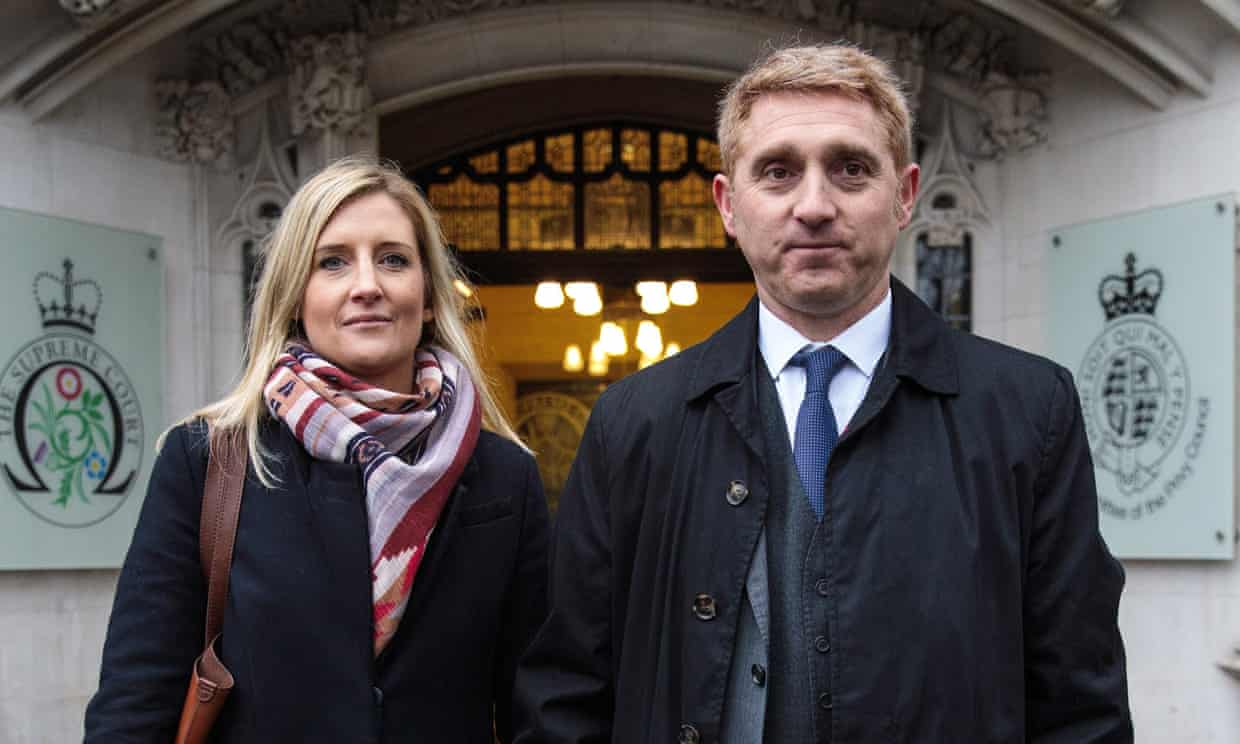Freedom of information request reveals 21% jump on 2014 and comes on eve of supreme court ruling on term-time holiday
Almost 20,000 people were taken to court for failing to ensure that a child went to school in 2015, according to data obtained under the Freedom of Information Act.
Parents who took their children out of school without permission were punished with fines, community sentences and even prison, the Ministry of Justice information showed.
The figures were obtained by the Press Association and come after the Department for Education introduced stricter rules on absences in 2013 to crack down on children missing school. These limit the power of headteachers to grant term-time absences and restrict authorised leave to “extraordinary” circumstances only, such as funerals.
The number of prosecutions has been steadily on the rise since then, with a 21% increase in 2015 on the 2014 figure of 16,430.
Of the 19,920 people taken to court in 2015, 75% were found guilty, of whom 77% were given fines. A total of eight people were handed jail terms, while 553 were given community sentences.
Since 2011, the total number of people taken to court increased by 61%.
In the past 12 months, the number of parents facing court action for their child missing school without permission increased by more than a fifth to almost 20,000
The findings came as the supreme court was due to give a ruling in a landmark legal battle between the DfE and 46-year-old Jon Platt, a father who took his daughter on holiday during term-time without permission.
The dispute between Platt and his local education authority, the Isle of Wight council, has been watched carefully by teachers and parents across the UK.
Parents will be criminalised on an unprecedented scale if judges reverse an earlier ruling that overturned a ban on term-time holidays.
Platt successfully challenged the council’s £120 fine last year. The judgment will have far-reaching implications for the government’s efforts to crack down on unauthorised absences.
Platt took his daughter out of school on holiday for seven days in April 2015. He has refused to pay the fine.
His lawyers argued that there was no case to answer since the girl had attended school regularly. The school register recorded her attendance at 92.3%.
Platt said that if the supreme court rules in favour of the DfE, it “will criminalise 6 million to 7 million parents. Being one minute late will be a criminal offence.”
According to a poll by Atomik Research in 2016, parents strongly back Platt, with many being tempted to take their children out of school during term-time to avoid increased travel costs. The figures show that 84% of Britons believe parents should not be criminalised for term-time absences, with 63% of teachers saying the same, according to TES (formerly known as the Times Educational Supplement).
Justine Roberts, chief executive of Mumsnet, said parents on the parenting website would like to see headteachers given more discretion over absences.
“Mumsnet users are supportive of teachers who want to minimise absences and disruption,” she said. “But at the moment even trips with genuine educational value risk being refused – and if an older child is truanting without their parents’ knowledge, fines are unlikely to resolve the problem.”
Ministers argue that the stricter rules are necessary, as missing classes can affect school results. They criticised the original guidelines, written in 2006, saying they were confusing, with many parents mistakenly thinking they had a right to two weeks of term-time holiday.
According to a DfE spokesperson, penalty notices are one way of deterring pupils from being out of school without permission. Overall absence rates have decreased by 1.9 percentage points since 2006/7 academic year.
“These figures show overall absence rates remain at historic lows, and thanks to the hard work of schools and local authorities the proportion of pupils who persistently miss school has fallen by more than a third since 2010/11,” the department said.
You can find the original article here.

